List of 7 biggest football clubs that no longer exist
Football is not only the king of sports, but also a place where history, identity and pride of millions of fans around the world converge. However, no football team is immortal. Despite winning major titles, possessing top stars or creating glorious moments, many clubs still cannot escape the harsh laws of finance, management mistakes or fluctuations off the field. Some teams disappear due to bankruptcy, some are removed due to legal changes, and some teams simply cannot survive. Below, Kingsoccertips shares the top 7 biggest football clubs that no longer exist.
7 biggest football clubs that no longer exist
Although they once made waves on the pitch and left a deep impression on fans, 7 biggest football clubs that no longer exist leave behind regrets for a glorious period.
7. União São João (Brazil)
União São João was a familiar name to Brazilian football fans in the 1990s. Having competed in the Brazilian National Championship (Série A), producing talents such as Roberto Carlos, this small team was once the pride of Araras, a small provincial city in the state of São Paulo. But like many teams in South America, they did not have a sustainable financial model. Reliant on the city budget, without stable TV rights revenue, and unable to attract major sponsors – São João gradually fell down the rankings. In 2023, after years of struggling in the amateur ranks and not being eligible to compete professionally, the club announced its complete dissolution.
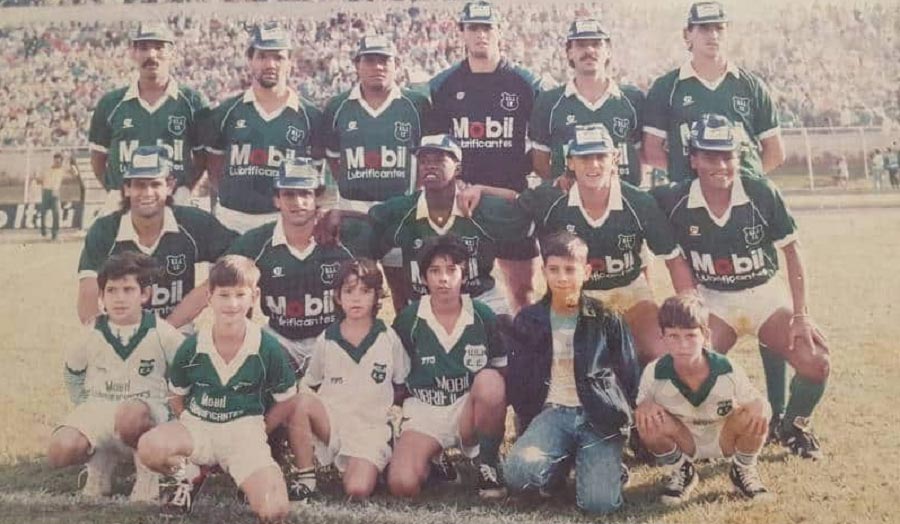
For bettors, especially those who like to take risks in South American bets, São João is a warning that the existence of a team is not obvious. In poorly organized leagues like Brazil’s Série D or state leagues, teams can fail to play, be banned, or withdraw midway through the tournament – causing bets to be voided or result 0-3 by law. Betting on teams like São João always comes with huge “off-field” risks. When bookmakers offer odds that are too lopsided, ask yourself: can the team afford to play? Will they have 11 players on the field? These are no longer far-fetched questions in the reality of South American football.
6. CD Logroñés
CD Logroñés was a team that represented the La Rioja region in La Liga during the 1987–1997 period. They were the embodiment of resilient local football, successfully staying in the top flight on several occasions despite a small budget. The team had defeated giants like Barcelona and Valencia at home, and was a symbol of local pride. But like many small clubs in Spain, Logroñés could not escape the financial vicious circle: long-term debt, no standard stadium, low commercial income. By 2009, the club was completely dissolved after many relegations and bankruptcy.
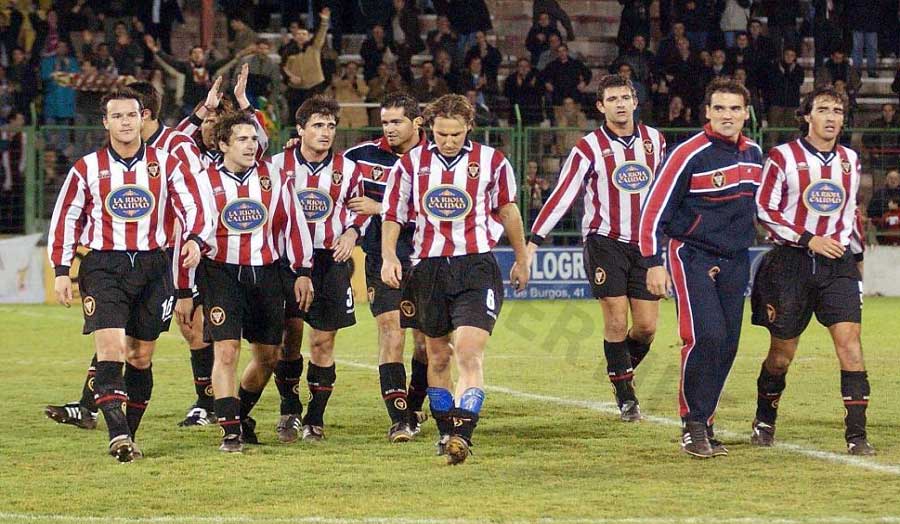
For bettors, Logroñés reflected a different front: a remote team that was once at the top. Many people mistakenly believe that when the team is relegated, they will be more likely to “win the bet” due to the difference in class. But in reality, when finances run out, the team loses both the quality of its players and its fighting spirit, and is even subject to administrative sanctions (point deductions, playing without spectators, transfer bans). Betting in lower leagues requires the skill of assessing the “infrastructure” of the team not everyone who has played in La Liga is worthy of being on the top of the Segunda or Tercera. Logroñés is a clear example of that.
Grab the online bookmaker offer now to take advantage of winning opportunities faster and easier than ever!
5. FC Tirol Innsbruck
FC Tirol Innsbruck were the dominant force in Austrian football in the late 1990s and early 2000s. They won the Austrian Bundesliga three times in a row (2000, 2001, 2002), competed in the UEFA Champions League and were a familiar face for Austria on the international stage. However, behind the glory lay a frighteningly fragile financial system. The club spent beyond its means, had no control over its wage bill and relied entirely on risky loans. When its main sponsor withdrew, the board failed to turn over cash, leading to bankruptcy just weeks after winning the 2001–02 title. FC Tirol had its license revoked and disappeared from the professional system completely in 2002.
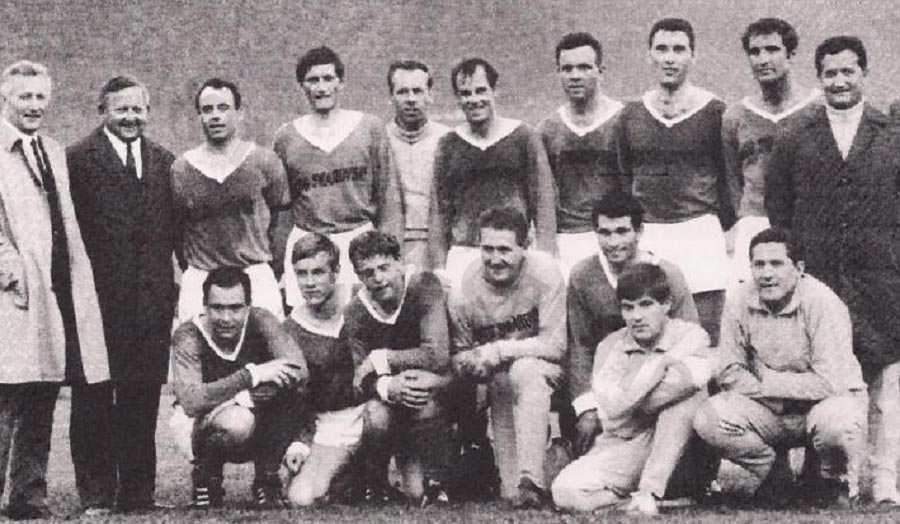
For bettors, especially those who are fond of lesser-known European odds, FC Tirol is a wake-up call. A team that dominates the league, wins consistently and has high handicaps does not necessarily mean financial stability. In many cases, sudden success is a sign of excessive “burning” a financial bubble that is about to burst. Long-term betting on teams like Tirol is extremely risky: a small financial crisis can mean losing your entire bet, especially if the team cannot continue playing because it is liquidated. Don’t let the winning streak fool you keep up with the team’s financial and behind-the-scenes news.
4. Gretna FC
Gretna FC was the most beautiful fairy tale of Scottish football in the early 2000s. From an unknown club in the lower leagues, they were promoted in 3 consecutive years, reached the final of the Scottish Cup in 2006 (against Hearts) and won a place in the UEFA Cup. This achievement did not come from a training system or long-term strategy, but almost entirely thanks to the unlimited funding of billionaire Brooks Mileson – who spent money on signing contracts, upgrading facilities and paying huge salaries to players. However, when Mileson suddenly fell seriously ill and passed away in 2008, no one “poured money” anymore, Gretna immediately collapsed. Players were not paid, the team was eliminated from the professional league in less than 6 months.
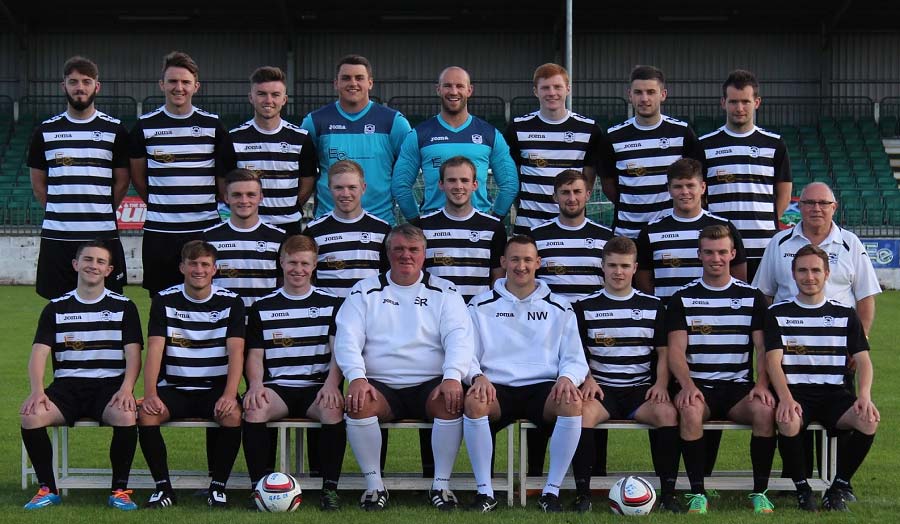
For bettors, Gretna is a vivid lesson in the risks of “hot-money” teams. Even if a team has an impressive winning streak and a strong squad, if it does not have sustainable financial security or depends on a single investor, it is a time bomb. When the sponsor withdraws, all bets related to them from wins, rankings, to season bets can be broken. The advice is: if you see a team that is “rising like a kite” but does not have a solid foundation (no own stadium, dependent on a strange billionaire, no commercial revenue), be extremely cautious. Short bets are still possible, but long bets on a team like Gretna are… suicidal.
3. Wimbledon FC
Wimbledon FC is not the most traditional club, but it is the most vivid symbol of the “Cinderella” story in English football. From a small amateur club in south London, they rose to professional level, then unexpectedly won the FA Cup in 1988 when defeating Liverpool – a shock that shook Europe. However, that beautiful story ended in bitterness. In the early 2000s, due to financial difficulties and not having their own stadium, the board decided to move the club to Milton Keynes – a city far from London – and changed the name to Milton Keynes Dons (MK Dons). Fans were outraged, seeing this as a “betrayal of football”, and established a new team – AFC Wimbledon. In 2004, Wimbledon FC was officially abolished, ending a unique historical journey.
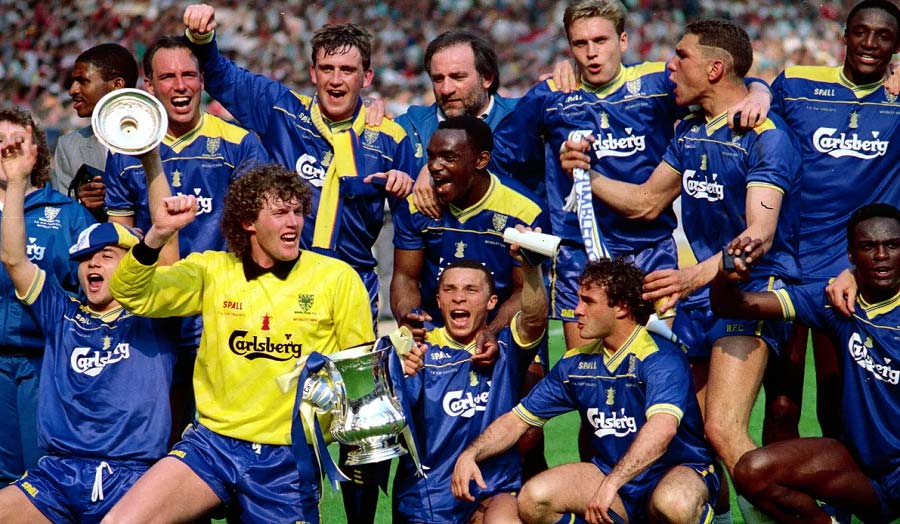
For bettors, the story of Wimbledon is a clear warning about the “unsporting” factor affecting betting results. A team that has been withdrawn from the community, has no fan support, and has low morale… all lead to poor results on the field. When betting on teams that are in dispute over ownership, moving stadiums, or have conflicts with fans, stay away from winning odds, over-goals, or Asian handicaps that are favorable to them. A team that no longer plays for its flag, no matter how good its squad is, can easily lose your account because you put your trust in the wrong place.
2. Parma FC
In the 1990s, Parma were a nightmare for Europe’s giants. Boasting stars like Buffon, Thuram, Cannavaro, Verón, Crespo and Hernán, Parma beat Juventus to win the UEFA Cup, then beat Marseille to win another European title. In less than a decade, Parma won eight major trophies, including the Coppa Italia and Supercoppa Italiana. But the empire was built on a shaky financial foundation namely the massive financial backing of the Parmalat group. When Parmalat went bankrupt in 2003 in one of Europe’s biggest accounting scandals, the dominoes began to fall. Parma were sold, changed hands several times, were relegated and finally… went bankrupt in 2015. They were eliminated from Serie A and had to start over from Serie D.
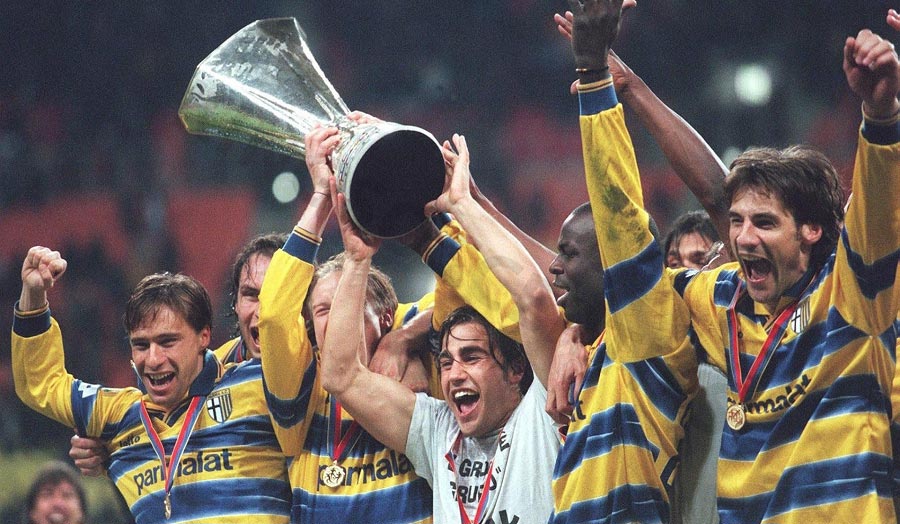
For the betting world, Parma is a vivid illustration of the illusion of short-term success. Many people expected Parma to finish in the top 4, play in the Champions League or at least win Asian handicaps against weaker teams. But behind the brilliant victories was a financial system that was collapsing day by day. For bettors, that means: before you believe in a “good” bet, check if the team is sustainable. A bankruptcy will not only make you lose that day’s bet, but also make all long-term bets meaningless because the team… is no longer playing.
1. Bury FC
Bury FC were once part of the fabric of English football, having been founded in 1885 and are older than many of the current Premier League sides. They are one of the few teams outside the “big boys” to have won the FA Cup twice (1900 and 1903), and hold the record for the biggest FA Cup final win (6-0 against Derby County). For nearly 130 years, Bury played regularly in the English professional league system without ever being expelled from the English Football League until the big shock of 2019. Drowning in debt, unable to pay wages, and failing to meet the financial standards to register for the new season, Bury were expelled by the EFL mid-season the first time in modern English football history that this has happened.

From a betting perspective, this is a very expensive lesson. While many people often focus on recent form, squads, or head-to-head records, financial and behind-the-scenes factors such as unpaid player wages, an owner under investigation, or the club being threatened with bankruptcy are extremely important. A seemingly stable team can disappear completely in just one transfer window if there is no buyer or points are deducted for financial violations. With Bury, anyone who bet long-term on them that season (e.g. on promotion, top 6 League One…) lost everything not because the team played badly, but because… the team no longer existed.
In Conclusion
The disappearance of once-famous clubs is a reminder that in football, glory is never permanent. Even if they once made a name for a land or made their mark on the continental stage, they can still wither without financial stability, strategy and support from the community. The names on this list of English football clubs that no longer exist are not only the closing chapter of football history, but also evidence of the fragility of a seemingly sustainable system. And for football lovers, that is a reason to cherish the present when the teams they love are still existing and competing.
See more: Meet the top 7 best national football teams of all time
